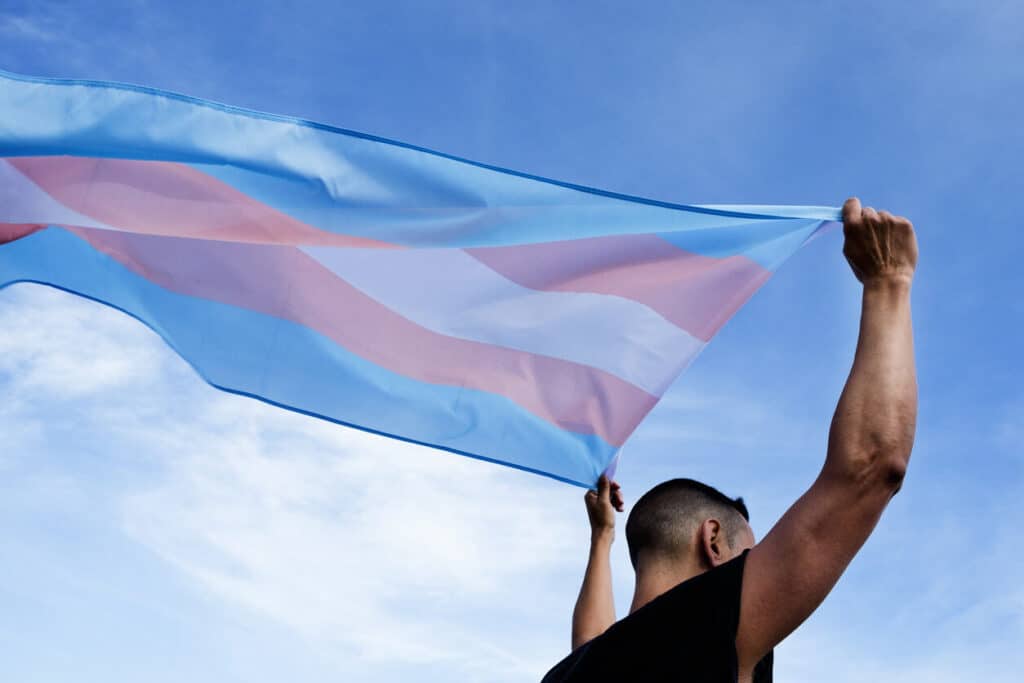
Teaha Cameron
7 February 2024
Patricia Weerakoon with Robert Smith and Kamal Weerakoon. The Gender Revolution: A Biblical, Biological and Compassionate Response. Newtown: Matthias Media, 2023.
Reading this book is like being splashed with cold water. Some might find it refreshing, while others might find it abrasive. The authors are aware that their book is landing in a space where conversation is uncomfortable, however necessary. Gender fluidity and transgenderism continue to become more common in our world. The stakes on conversation and action around it only continue to rise, particularly in Victoria. It’s tough being a Christian and trying to understand how to love well in this time. This book strongly, clearly, and effectively explains one perspective and approach to doing so.
This book is backed by extensive expertise, written by an authorial team with medical, theological, and pastoral backgrounds. Patricia Weerakoon’s academic and professional experience in science, biology, and sexual health, brings an earnest and knowledgeable voice to this discussion. This is backed by biblical and cultural awareness from Robert Smith and Kamal Weerakoon. Their stated intention is to bring to light the dangers and concerns transgender discourse raises, and to provide a perspective, a truth grounded in science and Scripture, that brings hope and brings people back to reality.
Read more: Church to remember suffering of transgender community
They use a very helpful analogy of a tree in understanding human sexuality. The biblical perspective on human sexuality sees biological sex as the trunk, the grounding foundation of sexuality, in which the branches of gendered behaviour, gender identity, and sexual orientation flow out of like branches. They demonstrate there is a grounding reality in which we find meaning outside of ourselves, by looking towards God, our creator, and that the body is a temporary home which will be made perfect when Jesus comes again. They contrast this with “the transgender ideology” which uproots the tree and flips it. Here, the foundation of human sexuality is found in gender identity, a moving, ever-changing state of internal feelings, in which biological sex, gendered behaviour, and sexual orientation are altered or redefined to align with the individual’s sense of gender identity. It suggests that reality is defined by the self, and people find their own meaning and identity by looking inward, seeking a fleeting freedom through our own control. The main body of the book is unpacking each of those components of human sexuality, explaining the cultural influences on transgenderism and of transgenderism, bringing in biological concern from a background in medical expertise, and then responding with the freedom found in the Bible, with sprinklings of compassion for the people affected by the ideology.
If you’re someone who wants to understand the concern from the Christian perspective as well as the hope that the gospel holds, then this book is for you. The entire book makes a clear case for the ways in which the underlying messages and behaviours of the belief systems around and practice of transgenderism, poses a threat biologically and biblically, giving clarity and understanding behind the feelings Christians have around this subject. As their discussion moves from people trying to find meaning apart from God into biblical discourse, I felt almost a sense of relief. There is so much hope in what God says and has designed. The gospel truly holds the answer and the truth that the world needs. There is so much freedom in God’s word and there is a grounding reminder of the identity and intention that is found from being created on purpose by God.
If you’ve only heard the world’s affirmative side of the story and need to balance perspective, this book is for you. It suggests reasons for the psychological and spiritual unrest people experience, those within the transgender community and outside of it, in a sobering portrayal. There is a heavy emphasis on the dangers of manipulating typical functioning of the human body for the sake of psychological comfort, especially when it comes to puberty. The book brings balance to the affirmative perspective on transgenderism that is so prevalent, with loving concern about people’s health, wellbeing, and spirituality. This book is hugely educational and easy to understand in terms of the biblical and biological perspectives regarding transgenderism.
Read more: My friend just came out as transgender, how should I respond to this?
If you’re a person who struggles to compassionately interact with those in the transgender community, this book is not for you. Compassion is not the strength of this book. The book is framed with the intention to separate the transgender “ideology” from the transgender person. Though great effort was taken, and with a degree of success, the distinction between the two, at times, was not as clear cut. Extreme cases where individuals have left humanity as well as gender behind, wanting to be identified as a “furry”, are used to make the point of how far things can go. However this lumps everyone in with the extreme, which is not an accurate representation of the transgender community. Emotive words are used consistently throughout the book to clearly convey tone. Their direct perspective, though powerful and full of truth, can come across as lacking compassion. There are mentions of the poor mental health statistics, the prejudice that often comes from the people of Jesus, and how we need to love people. However the acknowledgements can feel shallow. I fear it could leave readers with zeal against transgender ideology that overshadows seeing the people behind the ideology.
The last two chapters of their book provide the compassionate application well within Christian contexts, giving worked examples for how the respond in a church, Christian school, and family context, which are clear, concise, and helpful. When trust and relationship is built, you can follow the advice to come in with a firm truth, delivered with compassion. However, the examples given are very specific and address situations with pre-existing institutional policies to lean on or a history of trust in the relationship. I would caution readers to sit on the ideas they’ve presented and think further about their impact and how they would be delivered in various other contexts. This book holds so much knowledge, expertise, and research, as well as an earnest heart and intention to bring about truth, so it is still worth the read.
Teaha Cameron is the Workshop Coordinator for Big Kids’ Table. A ministry that exists to create safe, honest conversations about Kingdom identity and sexuality for youth and young adults of faith and their communities.
For more faith news, follow The Melbourne Anglican on Facebook, Instagram, or subscribe to our weekly emails.






